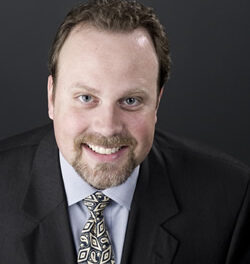Gone are the days when graduate students in composition swallowed their creative juices and conformed to The Canon of approved twentieth century composers. The Schoenberg-Berg-Webern triumvirate and their disciples were in; everybody else was out. Yes, it was that bad.
During those years – the 50s-70s – there emerged from the strait jacket several contemporary music performing groups who were able to lighten up enough to add a little entertainment to their brew. The Kronos and Turtle Island Quartets started the trend and developed quite a following among classical and jazz buffs. Eighth Blackbird, a sextet of young musicians who all knew each other and played together at Oberlin Conservatory and the Cleveland Institute of Music, has followed in this tradition. Established in 1996, eighth blackbird are young, funky and talented; and they have been able to capitalize on the demise of what is now the old school of contemporary composition. The six are flutist Molly Alicia Barth, clarinetist Michael Maccaferri, violinist Matt Albert, cellist Nicholas Photinos, percussionist Matthew Duvall and pianist Lisa Kaplan. The name eighth blackbird is derived from the eighth stanza of Wallace Stevens’s poem “Thirteen Ways of Looking at a Blackbird.” To a rainbow of shifting stage lights, performing standing, playing completely from memory and moving around the stage to team up with different group members, Eighth Blackbird delighted-and bewildered-an initially suspicious NCSU Center Stage subscribers.
The sextet spent a few days here, teaching a master class for composers at Duke, working with younger musicians at Raleigh’s Enloe High School and generally making themselves accessible for demonstrations and pre-concert Q&As. The NCSU gig was their final appearance, after which they were off to Greenville for a similar mini-residency at ECU.
There were three works on the program, each one highlighting a different aspect of the group’s wares. Minimum Security Trailer , by the Minimum Security Composer Collective, was a sampling of three movements of what will be a sixteen movement composite work. The title of the piece refers to the similarity of these three movements to a movie trailer, giving you a taste of things to come. Unfortunately, the fragment did not leave much of an impression. We would have preferred a complete work.
Not so the second work on the program. Aaron Jay Kernis’s Le Quattro Stagioni dalla Cucina Futurismo (The Four Seasons of Futuristic Cuisine), left the audience in stitches. Scored for violin, cello, narrator and piano, it is a setting of excerpts from Filippo Marinetti’s 1909 Futurist Manifesto and his The Futurist Cookbook (1932) which satirizes the language of gastronomy and as a spoof of Fascism, equates it with the rhetoric of politics and war. Even the group admitted that it is difficult to pay attention to the music when confronted with a barrage of recipes to gag on (poached mullet stuffed with dates, bananas and pineapple…). The music was funny, a little camp and quite tonal with sidesteps into polytonality and atonality, with a dash of some popular song or a classical war horse. The irony of a Futurist cookbook, written in the first third of the twentieth century was not lost on us. Perhaps the work should be called “The Four Seasons of Future Perfect Cuisine.”
The pièce de resistanc e of the evening, however, was Pocket Symphony by Frederic Rzewski, a work commissioned by eighth blackbird and premiered in 2000. A work in six movements, Pocket Symphony showcases one instrument of the ensemble per movement, replete with cadenzas for everybody-all improvised. The musicians-all but the cellist-moved about the stage, thereby creating a larger variety of acoustical effects than would have been possible were everyone just staying put. Here too, the entertainment factor was in evidence as the soloists served up their virtuosity with hefty portion of ham.
While we were not able to attend the Duke master class, we want to commend eighth blackbird for all the work they put in coaching the graduate composers. The ensemble received the compositions in advance and spent considerable time on their own preparing them for performance. A good thing too, apparently, since composers sometimes need to be reminded that their music needs to be performed and there are notes and fingerings that are unplayable on certain instruments.











